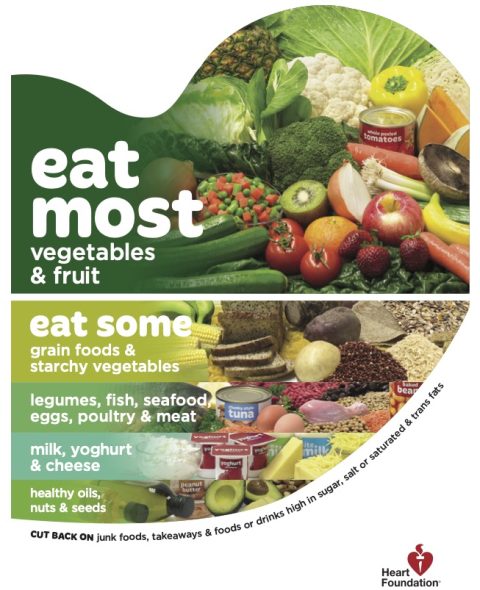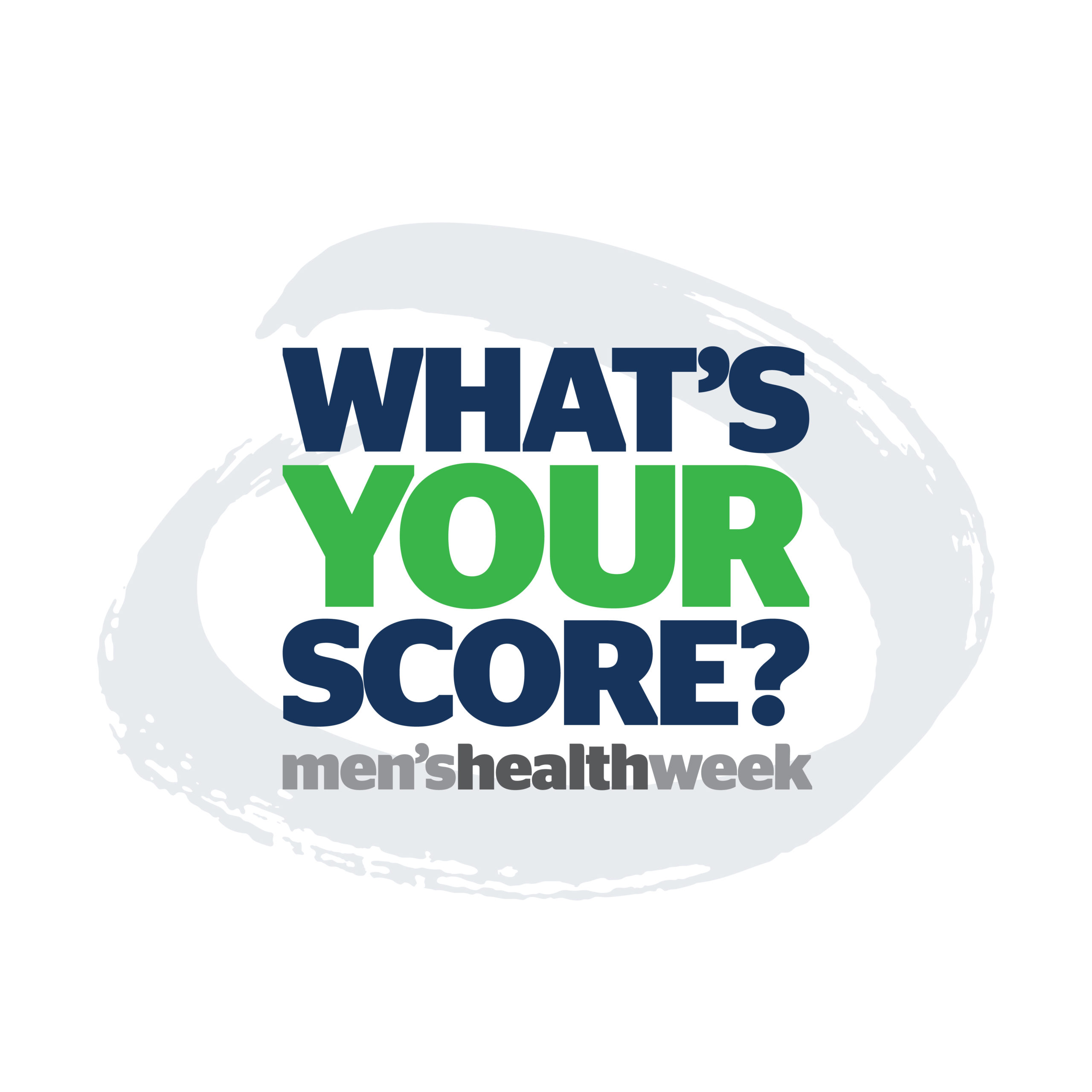Dave Monro knows food.
He’s the Heart Foundation’s Chief Advisor on Food and Nutrition and that makes him a bit of an expert on how Kiwi guys should be grazing.
For Dave it’s not all about don’t eat this, don’t drink that. If we heard that, we wouldn’t be reading this.
Dave knows we eat for fuel, but he also knows we eat for taste, fun and lots of other great reasons.
Adding instead of taking away holds the answer to keeping us eating well and our bodies liking us for it.
Dave offers us all some great advice for Men’s Health Week.

How important is what we eat and drink?
When it comes to what we eat and drink it can have a big impact on your blood pressure and cholesterol levels which are major risk factors for heart disease.
There are risk factors we can’t change, like your age and ethnicity, whether you are male or female, and your family history.
The good news is that no matter where you are on your heart disease journey, there are plenty of lifestyle factors that we can change to support our heart health. These include what we eat and drink, whether we smoke, our activity levels, our sleep and how we manage our stress levels.
If guys are looking to change, where should they start?
The best thing you can do is focus on creating habits that you can keep up over the long-term. It’s about consistency, not intensity.
For some guys starting with some changes to what they eat might be best, for others it might be more activity, drinking a bit less or getting more sleep.
The most important thing to think about is making small realistic changes that you can keep up even on days when you’re tired, busy or stressed. You know you’ve formed a habit when it becomes automatic, and you don’t have to think about it anymore!
Is there one specific diet that is best?
It’s not a one size fits all. Nutrition is a complex area, every person is different and so what works for one person may not necessarily work for another.
Furthermore, food preferences are heavily influenced by our culture, our upbringing, our taste preferences and our budget, which is particularly important at the current time given the increasing food prices and cost of living.
A range of eating patterns can be heart healthy, and your overall diet is more important than getting fixated on single foods. As an example, the amount of carbohydrate or fat is less important. Instead, it is the type that is most important and the quality of the different foods you are eating each day.
What are some of the best foods to eat for our heart health?
The strongest evidence for a heart-healthy diet is based around the following food groups.
♦ Eating plenty of plant foods particularly vegetables and fruit. The more the better.
♦ Replacing refined cereals/grains with whole grain foods (like oats and brown rice).
♦ Replacing red meat with high-protein plant-based alternatives (beans, chickpeas).
♦ Replacing foods high in saturated fat with heart-healthy fats (nuts, seeds, oily fish, avocado etc).
Where possible we want to be eating whole foods that are close to how they’re found in nature and dial back on highly processed foods.
What does this look like in terms of some simple steps for guys?
I like to think about what we can ‘add’ into our diet to give it a heart health boost instead of banning/removing certain foods.
Some of the examples could include.
♦ An extra handful of veggies when serving up dinner.
♦ A sprinkle of seeds over your breakfast.
♦ A meat-free meal each week.
And with cost and affordability being key for people some tips to pack in the plants:
Peanut butter is a cheap/accessible way of getting nuts into your day. Plenty of opportunities from toast, spread on fruit, even using it to make satay sauce.
Canned/frozen vegetables: minimise waste and save on prep time. Just as nutritious as fresh with lots of options at the supermarket these days.
Canned beans/lentils/chickpeas: around $2 a can and packed with fibre. A good place to start could be substituting half the meat in a dish for a can of beans.
What about alcohol?
Drinking alcohol increases your risk of high blood pressure which is an important risk factor for heart disease. If you drink alcohol, there’s no safe amount and it’s better to drink less.
Any steps you can take to drink less will benefit your heart health such as:
- having alcohol-free days and weekends whenever you can
- replacing alcohol with other beverage options
- taking advantage of the many low alcohol or zero alcohol drinks available in situations which might have previously involved alcohol.
Alcohol is also high in calories, and reducing alcohol intake, along with eating healthily and regular physical activity, could help to manage weight.
Low carb beers are often thought of as a healthier option. Although they do contain a lower amount of carbohydrate, and therefore energy, they usually contain a similar amount of alcohol.
If the best place to start for someone is physical activity, what is your advice?
A recent evidence review by the Heart Foundation showed that people who sat the most had a 29% greater risk of heart disease than those who sat the least.
Anything you can do to sit less and move more each day will benefit your heart.
We recommend doing at least 150 minutes of physical activity each week, but it doesn’t have to be running long distances or going to the gym. Cleaning, gardening and vacuuming all count too.
The best activity is the one you can do, enjoy doing and can sustain.
If you’re just starting off an activity programme, it is important to slowly ease your way into it and consult with your GP if you have an existing medical condition.”
Prevention is still the best medicine
The best thing to do is get proactive about improving men’s health. Preventative steps can reduce the risk of developing heart disease, diabetes and other health conditions.
Be aware of where men’s health is at and get up to date with the necessary health checks. A good first step is to try My Heart Check and encourage your mates to do the same.
Men should also get a regular heart health check at the following ages:
♦ Men with no known risk factors from age 45
♦ Māori, Pacific and South-Asian men from age 30
♦ Men with known risk factors, such as a family history of heart problems or at risk of developing diabetes, from age 35
♦ Men with severe mental illness from age 25
♦ Men with diabetes yearly from time of diagnosis.
Ask the right questions of a mate
Just asking men how a mate is doing can have a huge impact, you may find out something they should have mentioned.
Often these casual conversations about health and health-related experiences can be why a friend gets an overdue check-up.

“We mustn’t lose sight of the fact that what we eat is for many other reasons such as taste, enjoyment, connection. I’m a big believer in making these principles a part of any healthy eating approach and keeping things both realistic and inspiring for people.” Dave Munro, Heart Foundation expert
Here are moreore good thoughts from Dave Monro on processed foods. Check them out.

